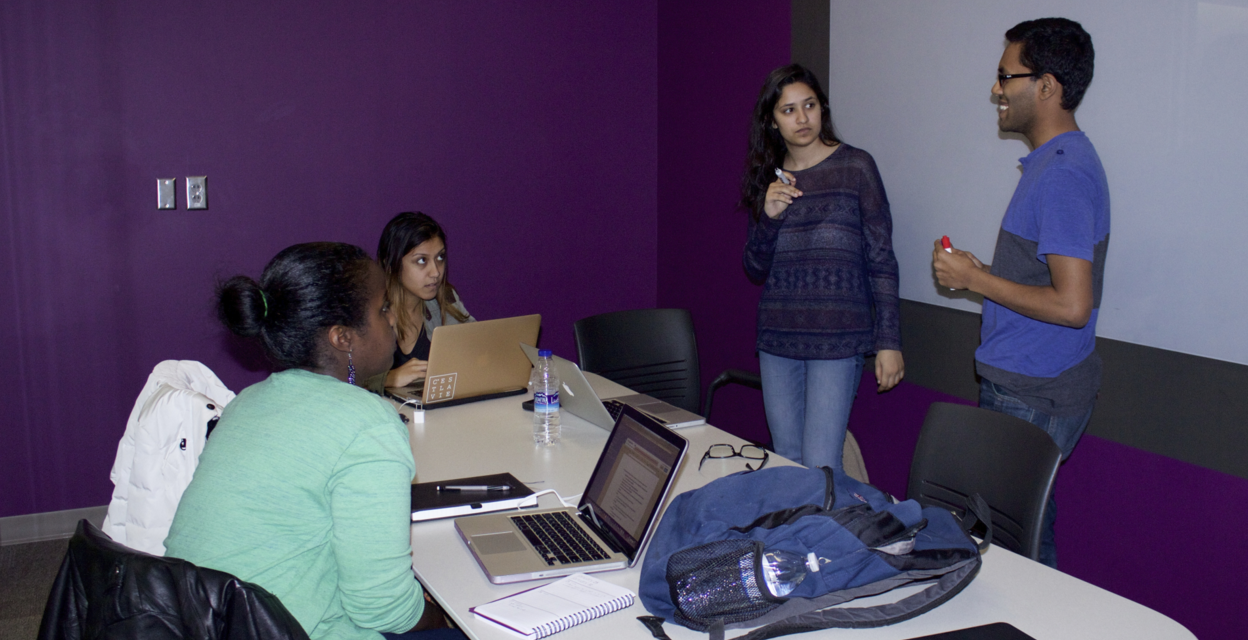A team of four Emory students has advanced to the regional round of the Hult Prize — the Clinton Global Initiative and Hult International Business School’s international competition to eliminate poverty in crowded urban spaces through social entrepreneurship. The team was selected to compete in Shanghai with about 350 others, who were chosen from over 20,000 undergraduate and graduate team applicants.
Each year, the Foundation challenges students to solve a worldwide issue through social entrepreneurship, and this year the aim is to double the incomes of over 10 million people who live in poverty. College sophomores Safiyah Bharwani, Victoria Umutoni, Rachel Citrin and College senior Rifat Mursalin came together to embark on this challenge because of their common interest in attempting to alleviate global poverty.
After identifying trash pile-up as an immense problem in slum areas, particularly in Dhaka, Bangalore, West Bengal and Maharashtra, Bharwani said the team is “considering using this trash to create a sustainable business, to increase the income of the slum-dwellers and to jumpstart the businesses in the area.”
The team proposed the implementation of machines that would both recycle street and river trash and provide employment opportunities for those who live in slums, Mursalin said.
The team’s focus is to determine root issues within crowded urban spaces and to identify a small group of people who can use social entrepreneurship to “jumpstart their income and improve their quality of life,” Bharwani said. Once the project works in one location, the team hopes to scale their idea and apply it to larger groups.
They also intend to pay attention to the ways in which education can elevate people out of cycles of poverty.
“Social entrepreneurship attacks the problems of the developing world much better than many other [methods] because it tries to create a sustainable model for developing communities,” Bharwani said. “It’s basically turning around businesses as they usually work because not only do you have the bottom line where you have to be sustainable, but you also have to have the socially profitable bottom line where you are trying to help people.”
As of 2014, the UN-Habitat estimates that over 54 percent of the global population live in urban spaces while 863 million people live in slum conditions. One of the teammates, Mursalin, connected personally with this theme.
“I’m from Dhaka, Bangladesh, one of the most crowded spaces on earth,” he said. “Growing up in this environment showed me how that can limit and stunt the growth, economically and socially, of a society.”
Raising incomes is a “very crucial need,” which can result in improved healthcare, infrastructure and the like, he said.
Regardless of the competition’s results, the teammates plan to continue working toward their goal of alleviating poverty.
“In the long run, we want to help not only improve incomes even more exponentially than doubling them but also [provide] a better quality of life that would last for generations,” Bharwani said.




